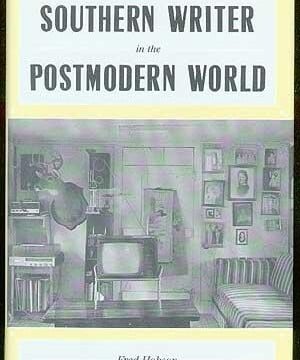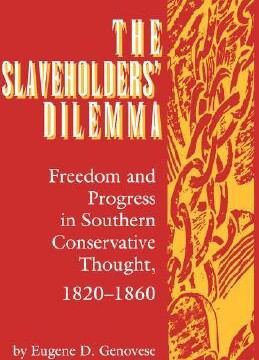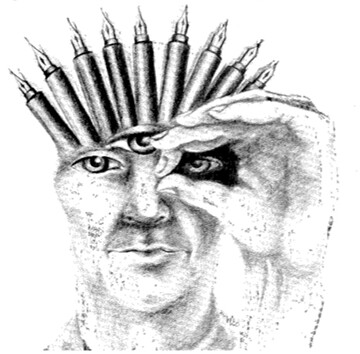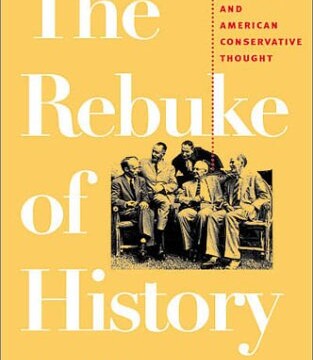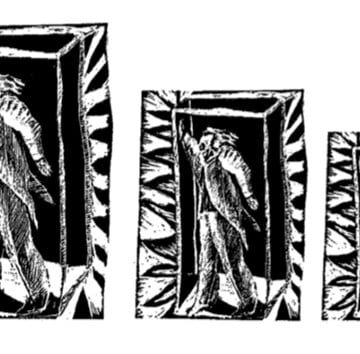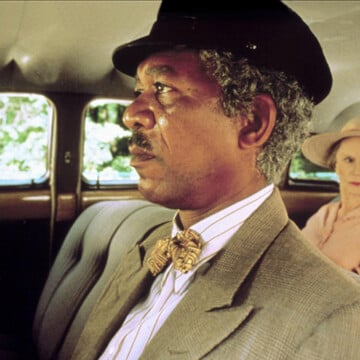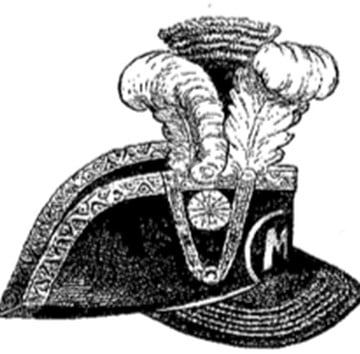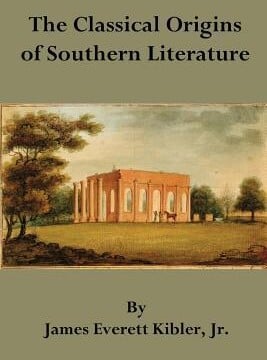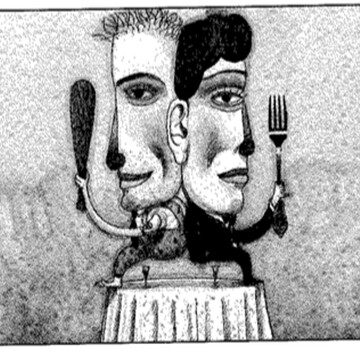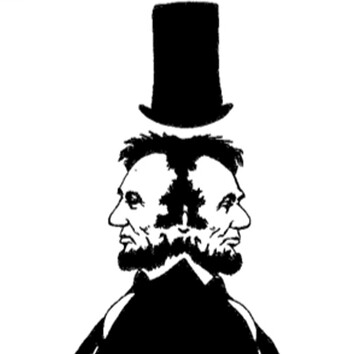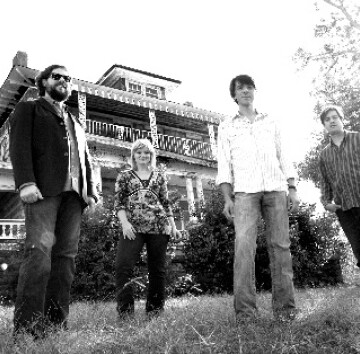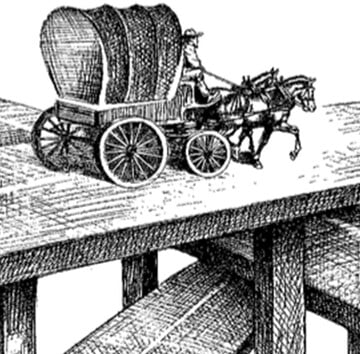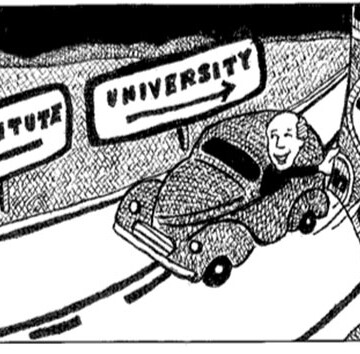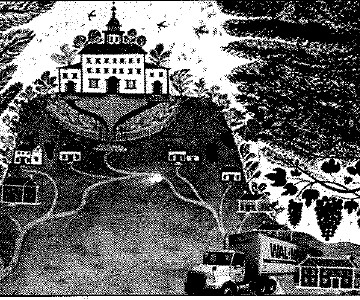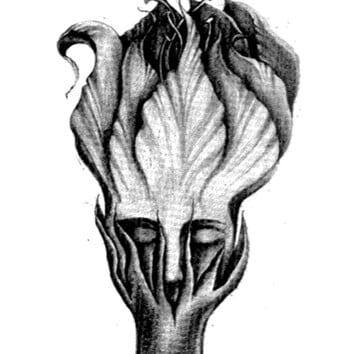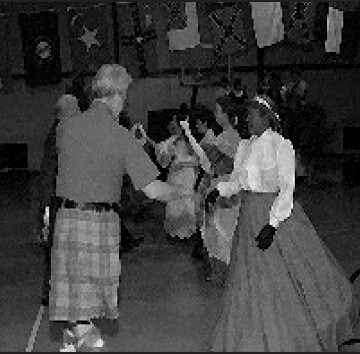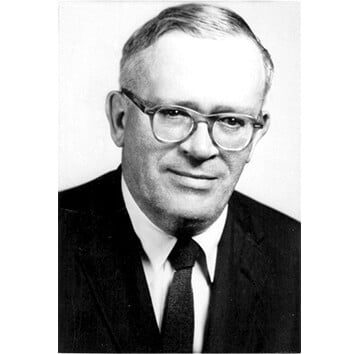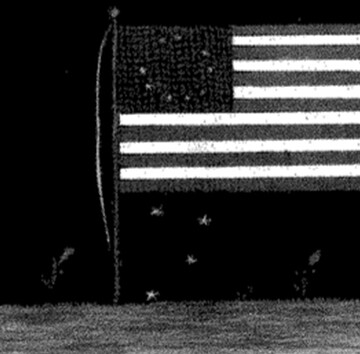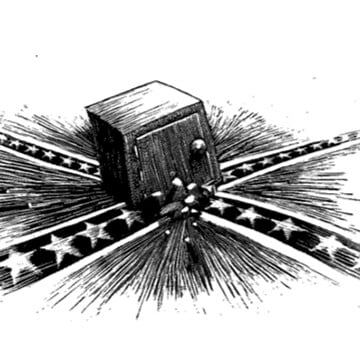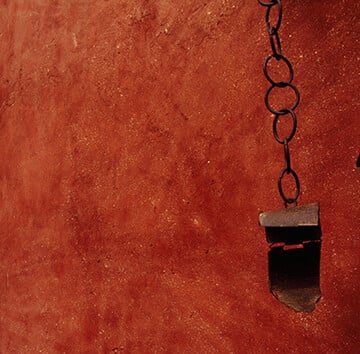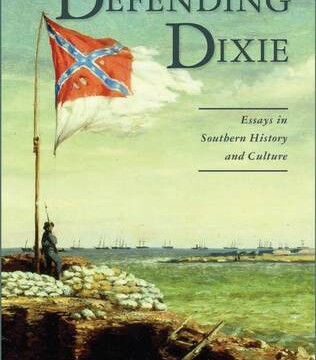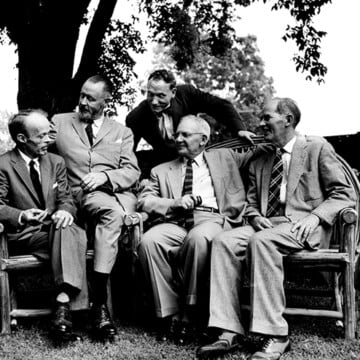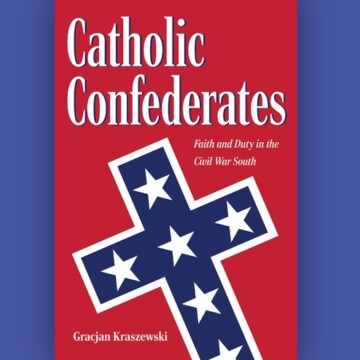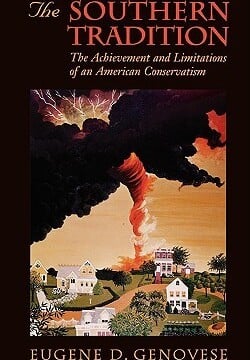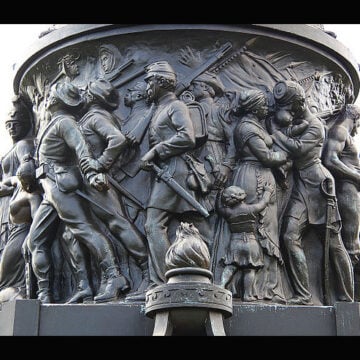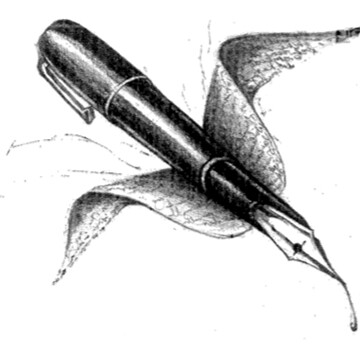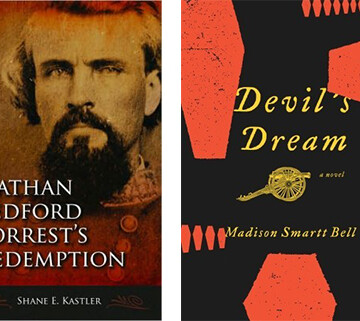Are you puzzled and irritated by the viciousness and falsity of most of what is being published these days about the South and Southern history? The beginning of all wisdom on this subject is to know that in American public discourse and so-called scholarship there is usually no effort to understand the South, like any...
2704 search results for: Southern%25252525252525252525252BHeritage
Old Possum
Thirty years ago, in the fall of 1957, the Fugitive-Agrarian poet Donald Davidson delivered the first Lamar Memorial Lectures in a small auditorium usually reserved for piano recitals on the campus of Mercer University in Macon, Georgia. Those three lectures, published in a slender volume bearing the legend Southern Writers in the Modern World, have...
Hobson’s Choices
This slender volume—it embodies the 33 rd of the Mercer University Lamar Memorial Lectures—is most welcome. The topic is a matter of broad interest, and the author knows his stuff. As scholar and critic, professor and editor, Fred Hobson is a respected authority, one to be alertly attended. He doesn’t let us down. He wants...
Freedom Is Slavery
“Too much liberty leads both men and nations to slavery.” —Cicero In a recent and provocative essay, Paul Gottfried described Eugene D. Genovese as a “hero of paleoconservative intellectuals.” No doubt this declaration qualified as news in some circles, for the distinguished historian of the American South has always worked within the Marxist tradition. Or...
Crackers & Roundheads
“The Celt in all his variants from Builth to Ballyhoo His mental processes are plain—one knows what he will do, And can logically predicate his finish by his start.” —Kipling Despite all that has passed since, the Civil War is still at the center of American history. No one has ever doubted this in the...
An Obscene Carnival
The obscene carnival of digging up an American hero who died 141 years ago has come to an end. No arsenic was found in Zachary Taylor’s remains, proving that he was not poisoned, which any competent and sensible historian could have told you without this grotesque and impious exercise. (Even if significant traces of arsenic...
Our Fathers’ Fields
“There are a large number, possibly a majority, of people who call themselves conservative. But the more they are examined, the less conservative they will appear.” Chesterton, an English Catholic version of a Southern Agrarian, once remarked that Yankee tycoons (John D. Rockefeller, Henry Ford, J.P. Morgan) all had the same face—a face, he added,...
Ancestors
With the deaths of Robert Penn Warren and Walker Percy the specter of the star system is loose again in the land. “Who will be their successors? Who will pick up their mantle?” It’s a plaintive cry, predictable but genuine, largely journalistic and academic—a spume from the wave of canon-making—thinned by its basis in literary...
Driving Miss Racial Activist
At first blush, the 1989 film Driving Miss Daisy seems innocuous. Its plot centers around the relationship of an aging Jewish matron, Daisy Werthan (Jessica Tandy), and her black chauffeur Hoke Colburn (Morgan Freeman). Yet a recent rewatch caused me to notice irksome elements of the plot I missed the first time around. This has...
Eminent Southrons and Cinematic Slander
Some folks have been kind enough to notice my absence from these pages, and a few have been even kinder and expressed regret at it. The fact is that my wife Dale and I are working on a book. It will be called 1001 Things Everyone Should Know about the South, and we hope to...
Out of Troy
Author of several novels and a memorable autobiographical work entitled Our Father’s Fields (1998), as well as a leading light of the Abbeville Institute, James Kibler has produced in the present work an indispensable study of the classical influence on Southern literature. Other literary historians and critics of Southern letters have explored this territory; however,...
Time to Topple the Fourteenth Amendment
The Fourteenth Amendment is not a beatific and integral part of some mythical “Second Founding.” Indeed, it undermines republican government.
What Makes Southern Manners Peculiar?
“Southerners live in the 18th century.” This common charge is not altogether false, since the peculiar habits, customs, and meanings of words found often in the American South are found also in 18th-century English authors. Most English-speaking people use the word “manners” now only in the senses designated by the Oxford English Dictionary as current:...
Mr. Lincoln’s War An Irrepressible Conflict?
“[T]he contest is really for empire on the side of the North, and for independence on that of the South, and in this respect we recognize an exact analogy between the North and the Government of George III, and the South and the Thirteen Revolted Provinces. These opinions … are the...
The Rubble of Reconstruction
“The mind of the bigot is like the pupil of the eye; the more light you pour upon it, the more it will contract.” —O.W. Holmes Jr. In July 1865 John R. Dennett, a Massachusetts journalist and recent graduate of Harvard College, arrived in Norfolk, Virginia, the first stop on an eight-month journey that would...
Faithful Son
Boyd Cathey is an 11th generation Carolina Tar Heel who was mentored by and worked with Russell Kirk. The Land We Love: The South and Its Heritage is written reverentially, just as one might reflect on the memory of one’s mother. For the South is not just any region of the United States, like the...
The North’s Southern Cash Cow
Contrary to the claims of Marxism, economics does not determine the political structure of a country; rather, the political structure of a country determines its economic system. The Soviet Union was proof of that. In the case of the U.S. government, this can be seen in the adoption of tariffs, beginning in 1789. The tariffs...
Soundtrack to the New Old South
Sometime in the early 1990’s, while attending an event called a “song swap” in Athens, Georgia, I met an extraordinarily gifted songwriter named Patterson Hood. The swap itself was essentially a weekly gathering of aspiring tunesmiths sharing their latest creations; we would sit in a circle and each play our songs, the other musicians joining...
Class Dismissed
Last month, I wrote that Southern manners have taken the edge off class conflict in the South. Let’s explore that proposition a bit more. Fifty years ago, a North Carolina journalist named W.J. Cash published what quickly became a classic treatment of Southern history and culture, The Mind of the South. In that book. Cash...
Soundtrack to the New Old South
[A look at the Drive-By Truckers] Sometime in the early 1990’s, while attending an event called a “song swap” in Athens, Georgia, I met an extraordinarily gifted songwriter named Patterson Hood. The swap itself was essentially a ...
The Significance of the Region in American History
During the early 1920’s, 30 years after he had written his famous essay on the significance of the frontier in the nation’s history, the great American historian Frederick Jackson Turner published two other works on the democratizing role of what he termed the “section.” Sections, Turner wrote, “serve as restraints upon a deadly uniformity. They...
The Southern Myth
Andrew Lytle and Allen Tate, two of the original Vanderbilt Agrarians, maintained a remarkable friendship spanning some half a century, from the early 20’s until Tate’s death in 1979. While both pursued prolific literary careers, their paths crossed less frequently, particularly as Tate became identified with modernist poetry and criticism in the Eliot tradition. Lytle,...
Barbecue Shacks, Palmetto Groves, and Other Schools
The smog of political correctness hangs heavily over most American colleges and universities. Since the politically correct are intolerant, support only their own style of research, and hire and tenure only their own kind, this condition may well he with us for two generations. This has led some to despair over the fate of higher...
A Mess of Greens
When my secesh batteries need recharging, as they do every once in a while, I go hang out with someone like my Alabama friends Ward and Peggy. When I visited them last April, we went on a pilgrimage to the First White House of the Confederacy. As we floated down the Interstate in their splendid...
The Old South, the New South, and the Real South
In April 1968, the University of Dallas Literature Department hosted an Agrarian reunion. We invited John Crowe Ransom, Robert Penn Warren, Allen Tate, Andrew Lytle, and Donald Davidson to come together in several private sessions to discuss the history and meaning of I’ll Take My Stand. Ransom, Warren, Tate, and Lytle accepted. Davidson was too...
Southern Spies in the Ivy League
Several recent letters from readers outside the South have contained clippings and firsthand reports about the progress of Our Nation’s cause. I hope my correspondents don’t mind, but I’ve come to think of them as a sort of intelligence service, even sometimes as a Fifth Column. One expatriate, for instance, sent along a brochure for...
Donald Davidson and the Calculus of Memory
The opening scene of the folk opera Singin’ Billy, for which Donald Davidson wrote the book and lyrics, takes place in the yard of Callie Wilkins, “Miss Callie,” the matriarch of Oconee Town in Pickens County, South Carolina. Two young people have married, John and Jennie Alsop, and are in danger of a shivaree. They...
Christmas in Abbeville
Last winter, I traveled to Abbeville, South Carolina, for its Fifth Annual Olde South Christmas. To the casual observer, this event might appear to be merely an instance of savvy small-town marketing—an attempt to capitalize on the trade in nostalgic simulacra of a simpler time. It had been suggested to me that, despite the superficial...
Remembering Richard Weaver
Native Southerner and traditionalist conservative, Richard Weaver (1910-1963) was a unique figure in the rise of the modern American right. Weaver, a longtime professor at the University of Chicago, was an historian, literary critic, and rhetorician who despised the modern trend towards intellectual specialization. As an undergraduate, he embraced socialism after being convinced that the...
The South’s Threatened Future
Michael Westerman’s memorial service was held on March 4, appropriately enough on Confederate Flag Day. My friend and fellow Southern Leaguer, Jack Kershaw, and I arrived shortly before noon at the designated meeting-place in Goodlettsville, Tennessee, just north of Nashville on I-65. The sky was late-winter pale blue, and against it, from the throng that...
One Nation Divisible
Something extraordinary has happened over the last decade or so—something neither the Republican nor Democratic leadership seems to understand. A large and growing number of Americans are now openly saying that much of what the central government does is not simply wasteful, corrupt, and destructive but illegitimate as well. This year the central government will...
Haunted by Yesterday
“In literature, it is the hereditary spirit that still prevails.” —George Santayana Nothing is more dangerous for the critic than taking a book cover at face value. But when the blurbs compare the author to William Faulkner, Flannery O’Connor, Walker Percy, and Saul Bellow, the challenge is irresistible. And since these are the claims with...
A Meditation on a Meditation
“The fathers have eaten a sour grape, and the children’s teeth are set on edge.” —Jeremiah Why has the South had such a flowering of letters in the interval between World War I and the Korean War? Flannery O’Connor responded to that question by quoting the answer Walker Percy gave when he received the National...
Race and Racism: A Brief History
Today, many Americans presume that the debate over slavery in the 18th and 19th centuries turned on the question of race. Though race was an ingredient in the Great Debate, it was no more than a pinch of salt. Both proponents and opponents of slavery tended to hold the same view of blacks. The superiority...
Deconstructing the 1619 Project
Several years ago, I purchased a used copy of Robert Fogel and Stanley Engerman’s Time on the Cross: The Economics of American Negro Slavery (1974), one of the five most important books on American slavery that have appeared in the last 50 years. The previous owner had inserted a series of newspaper clippings of book...
Race and Racism: A Brief History
Today, many Americans presume that the debate over slavery in the 18th and 19th centuries turned on the question of race. Though race was an ingredient in the Great Debate, it was no more than a pinch of salt. Both proponents and opponents of slavery tended to hold the same view of blacks. The superiority...
Marching Through Whatever
This gathering of essays, studies, reviews, and occasional pieces is united by its subject and fused by the imagination and knowledge of the author. Clyde Wilson has responded not only to a host of opportunities as a professional historian and scholar but to sundry provocations as a lively contemporary who knows the implications of ideological...
Remembering the Southern Agrarians
In 1920 a group of writers gathered at the home of playwright Sidney Hirsch in Nashville for bi-weekly sessions of reading and dissecting each other’s prose and poetry. It was the beginning of an outpouring of creativity from a group that would try to defend and restore the traditional Southern way of life against the...
Persons, Places, and Things
“Because I was born in the South, I am a Southerner. If I had been born in the North, the West, or the Central Plains, I would be just a human being.” —Clyde Edgerton OK, let us admit that Mr. Edgerton exaggerates. Yet throughout the better part of the 20th century...
Southern Baptists Versus the South
The Southern Baptist Convention (SBC) has over 15 million members. With over 46,000 churches, they are present in all 50 states (as well as several foreign countries). It is the largest Protestant denomination in the United States. Nonetheless, for nine straight years, the SBC has reported a net loss of membership. Last summer, the SBC...
The Southern League
The Southern League, which was founded in Tuscaloosa, Alabama, in June 1994, seeks to advance the social, cultural, economic, and political wellbeing and independence of the Southern people. According to Southern League President Michael Hill, the South, though it has been subsumed by the American Empire, remains a distinct historical entity: “The South has its...
Catholic Comfort for a Wounded South
Catholic Confederates: Faith and Duty in the Civil War South by Gracjan Kraszewski; The Kent State University Press; 216 pp., $45.00 Brother Brutus J. Clay, S.J., was a fixture at Loyola University in the early-to-late 1990s. The wiry Southerner with a thick Kentucky accent not only attended to the Jesuit Fathers’ chapel as sacristan, but was involved...
A Sense of Place
Some people, mostly Southerners and geographers, like to argue about how you can tell whether you’re in the South. This discourse (if you’ll excuse the expression) can be more or less serious. My friend Vince Staten, for instance, once ran up a major phone bill calling restaurants on the Interstate to see how far north...
Twelve Westerners?
“The Sahara of the Bozart,” more than anything else Mencken wrote about the South, won him the undying hatred of the former Confederacy and its spokesmen. The essay, which first appeared in 1917 as a newspaper column and was subsequently expanded for inclusion in the next volume of the Prejudices series, was attacked at the...
Culture Politics
“The results of political changes are hardly ever those which their friends hope for or their foes fear.” —T.H. Huxley In political circles, it has become fashionable to talk about “culture wars.” The discussions usually touch on the issues of abortion, euthanasia, sexual orientation, school prayer, gun control, and welfare, among others. These are issues...
The Fate of Moses Jacob Ezekiel and His Memorial to the Confederate Dead
Just a few years ago, a monument to post-Civil War peace and reconciliation sculpted by one of America’s most gifted Jewish artists was universally acclaimed. Now a woke military commission and left-wing activists plan to destroy it.
Andrew Lytle and the Cultivation of American Letters
The name of Andrew Lytle should be better known than it is: he has been a distinguished novelist and author of some widely anthologized short stories; an essayist, historian, and memoirist; an editor of the Sewanee Review for many years; and a teacher of creative writing at the University of Florida and the University of...
Funny Business
Cleaning out my drawers, I find regional news items (some newer than others) from the worlds of religion and business, with some miscellaneous statistics for garnish. Beginning with religion (of a sort): In Tupelo, Mississippi (where Elvis was born in 1935), two brothers went on trial last year for attempting to murder Judge Tommy Gardner—by...
Still Fighting the Civil War
The influx of Northern migrants to these parts continues to produce misunderstanding. Some time ago, the good people of Hillsborough, North Carolina, gave up their right to shoot marauding vermin in their own backyards to an official municipal squirrel-shooter. Citizens whose nut trees were being sacked, gardens despoiled, or houses chewed up (it happens) could...
Neither Devil nor Mystery
Gen. Nathan Bedford Forrest was no more a devil than you or I. He was an arresting character, a powerful leader of men, and one of those natural-born military geniuses who appear from time to time in history, which is not the same thing as a devil. The “devil” label was given to him by...
